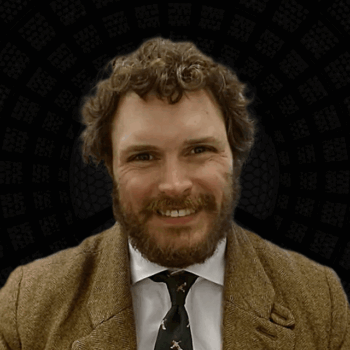

Rob Henderson’s journey from a troubled childhood in foster care to earning a PhD from Cambridge is a testament to resilience and the transformative power of structure and mentorship. Born into poverty in Los Angeles, Henderson never knew his father, and his drug-addicted mother lost custody of him when he was just three years old. Moving through seven different foster homes, a process that he describes as inherently destabilizing and disruptive, Henderson’s early life highlights the fundamental flaws in the foster care system.
Table of contentsEarly Life and Foster Care ChallengesStruggles with Attachment DisordersMilitary as a Turning PointThe Importance of Mentorship and GuidanceCritique of Societal Norms and PoliciesThe Concept of Luxury BeliefsImpact of Luxury Beliefs on the UnderclassBreakdown of Family StructuresThe Importance of Intact FamiliesStatistical Disparities in Foster CareCritique of Affluent AdvocacyAdvocacy for Realistic PoliciesHenderson’s Contributions and GoalsConclusionFAQsRelated Articles
Early Life and Foster Care Challenges
Henderson’s childhood was marked by instability and a lack of lasting attachments. The constant movement from one foster home to another prevented him from developing the emotional bonds necessary for healthy development. “If we treated adults that way, it would be much more controversial and contentious, but because they’re kids…they can’t agitate on behalf of their own interests,” he reflects. This chaotic environment, where “kids ruling over kids” can feel like “Lord of the Flies,” left him vulnerable to numerous challenges.
Struggles with Attachment Disorders
The frequent changes in foster homes contributed to attachment disorders and difficulties in forming stable relationships later in life. The lack of a consistent, nurturing environment hindered his emotional and psychological well-being, setting the stage for future struggles.
Military as a Turning Point
At 17, Henderson found a semblance of stability and purpose by joining the military. He credits the structure and discipline of the Air Force with turning his life around. “The military did eventually give me this lifeline,” he acknowledges, emphasizing the importance of the guidance and mentorship he received during his eight years of service. This period allowed him to develop the maturity and self-discipline necessary to pursue higher education successfully.
The Importance of Mentorship and Guidance
The mentorship Henderson received during his military service played a crucial role in his transformation. The stability and consistent support helped him build the foundation needed to succeed academically and personally. This experience highlights the long-term benefits of stable guidance for disadvantaged youth.
Critique of Societal Norms and Policies
Henderson critiques the societal norms and policies that often exacerbate the challenges faced by disadvantaged children. He introduces the concept of “luxury beliefs,” which he describes as a form of tithing by the upper classes who pay lip service to caring about the lower classes but propose policies that are not actually helpful. “The more education, the more likely people are to say that [hard drugs] should be decriminalized,” he points out, highlighting the disconnect between those who advocate for these policies and those who bear the brunt of their consequences.
The Concept of Luxury Beliefs
Luxury beliefs are ideologies and policies that affluent individuals advocate for, often with good intentions, but which can have detrimental effects on the underclass. These beliefs serve as a form of social signaling, demonstrating their empathy and progressive values without having to face the consequences of these policies themselves.
Impact of Luxury Beliefs on the Underclass
A prime example of a luxury belief is the decriminalization of hard…
Discover more from Randy Bock MD PC
Subscribe to get the latest posts sent to your email.























